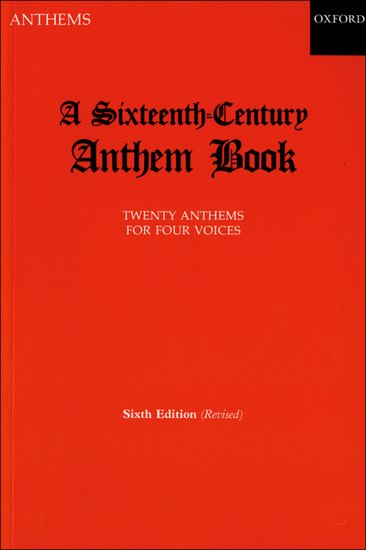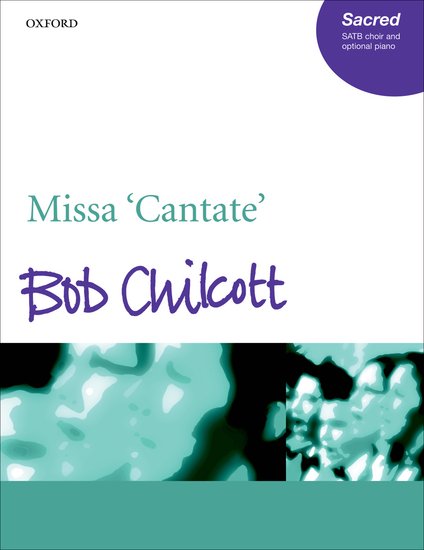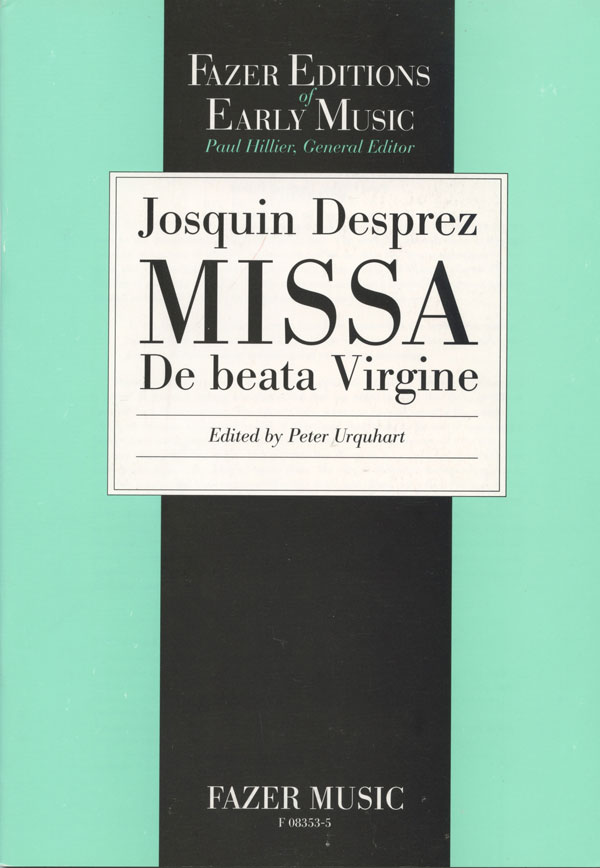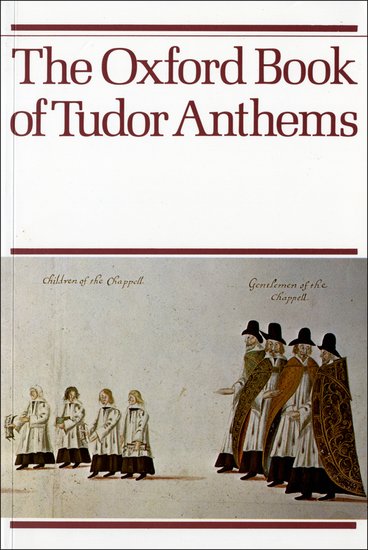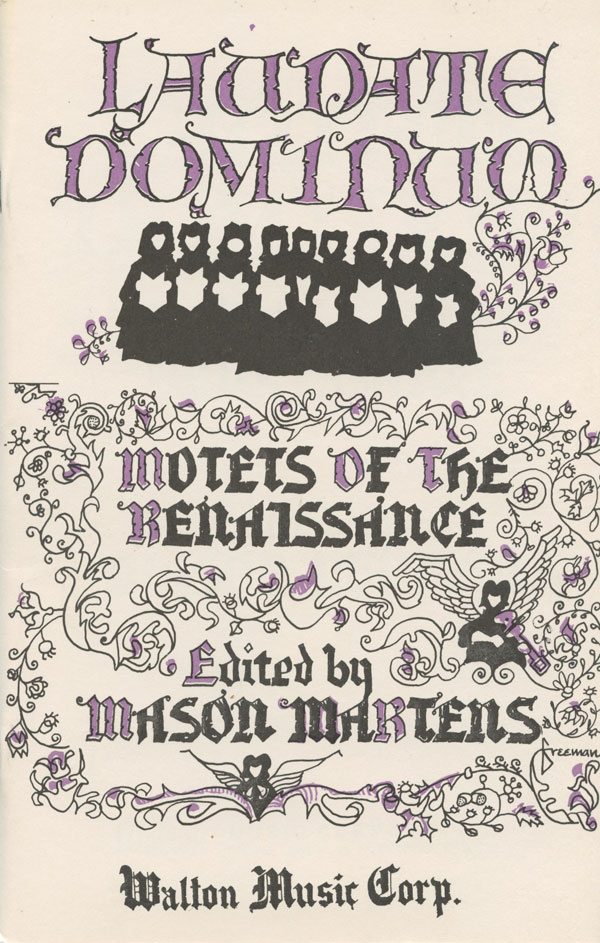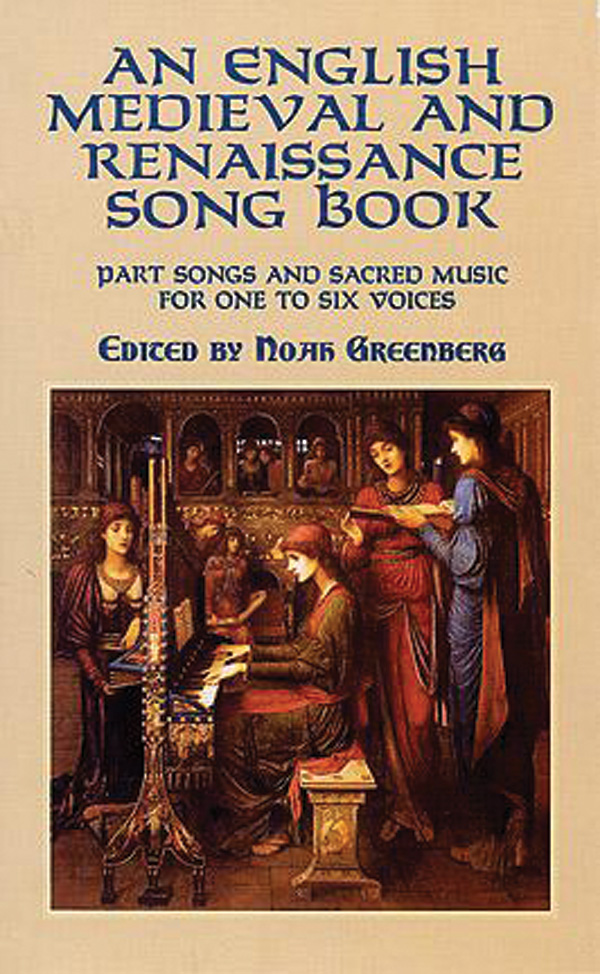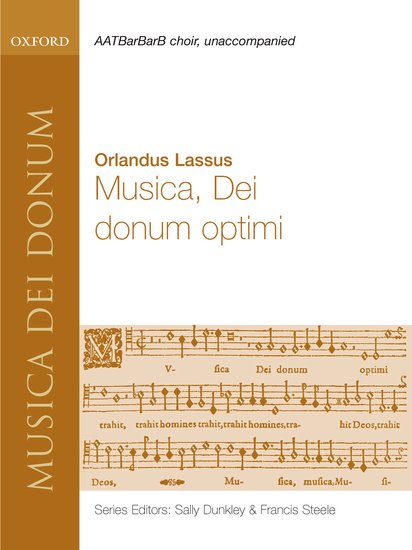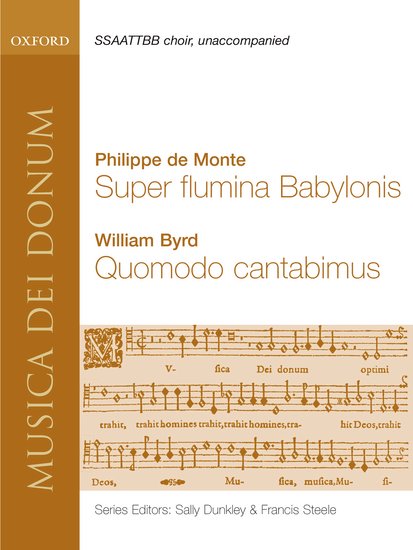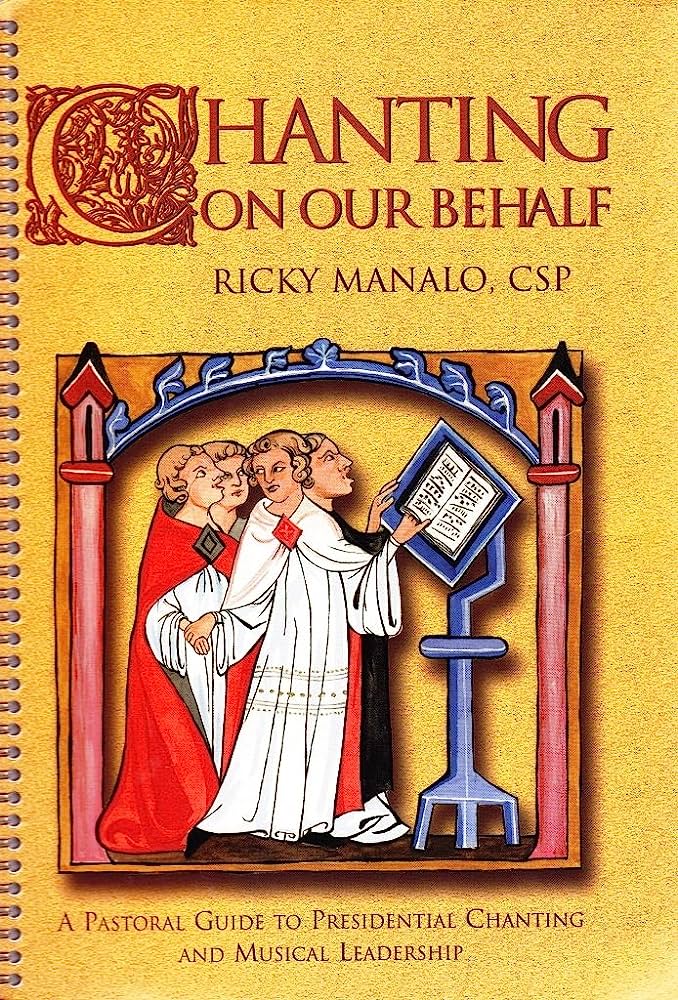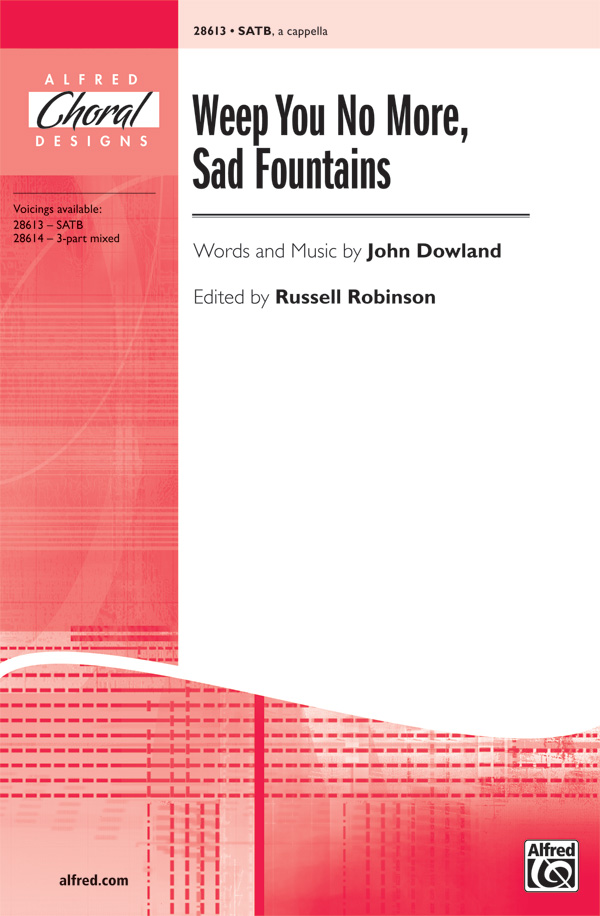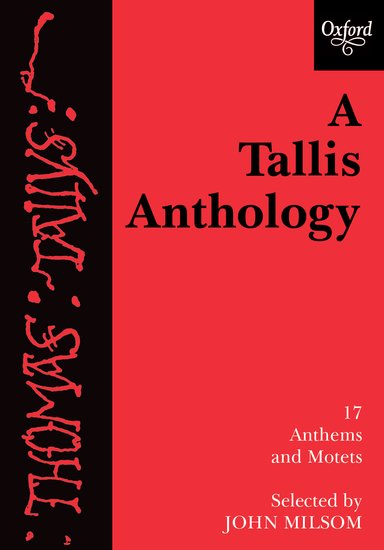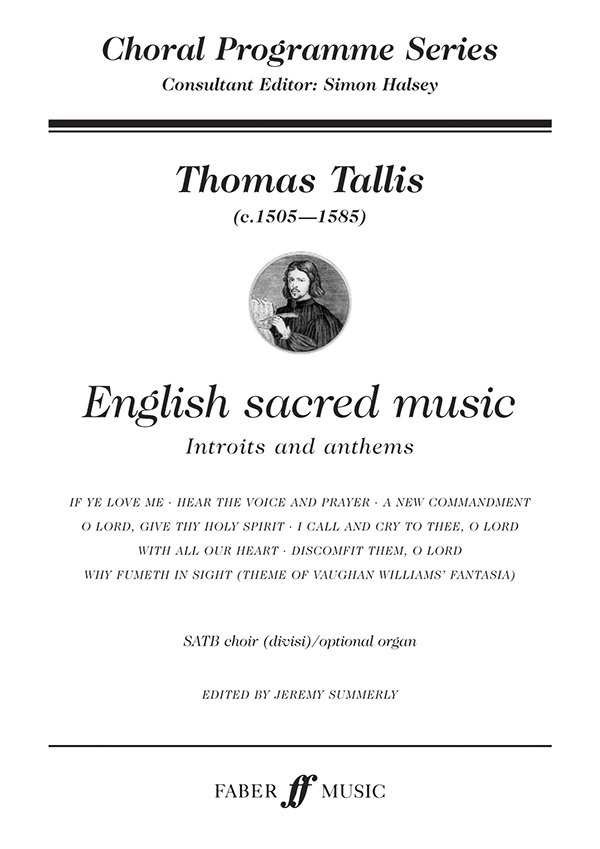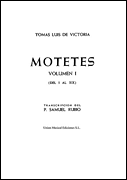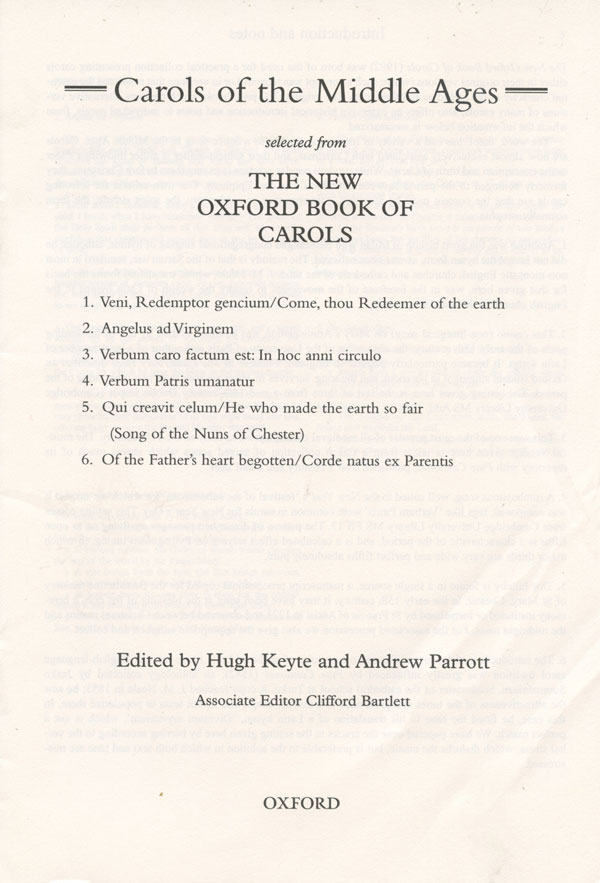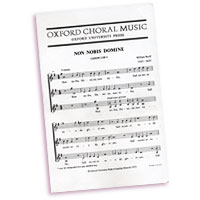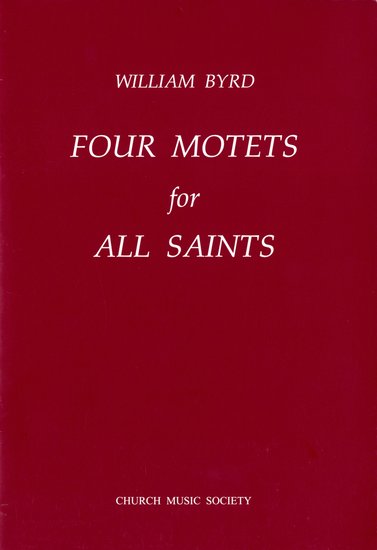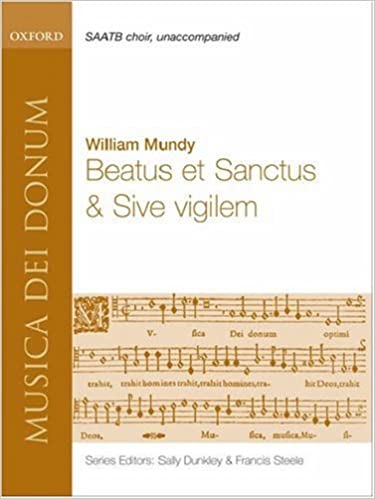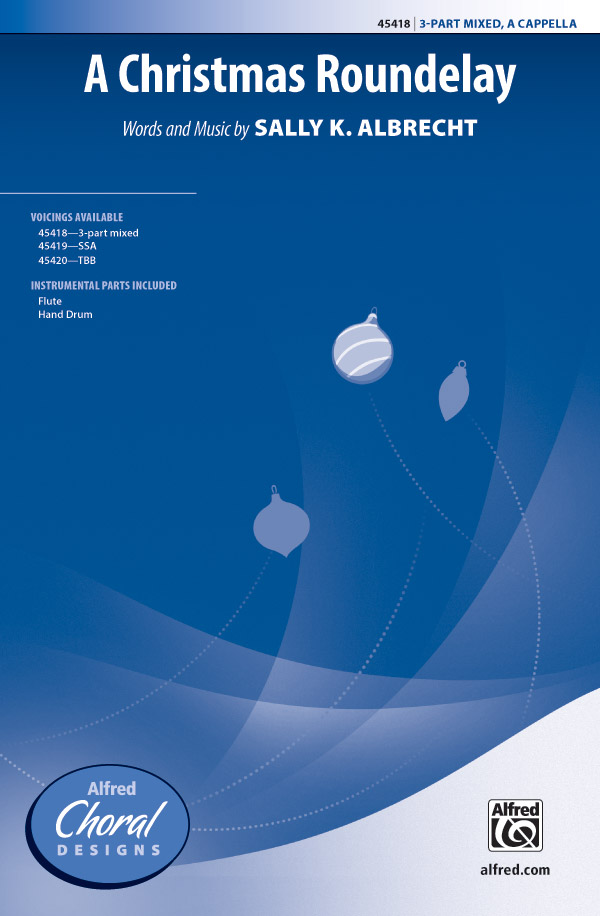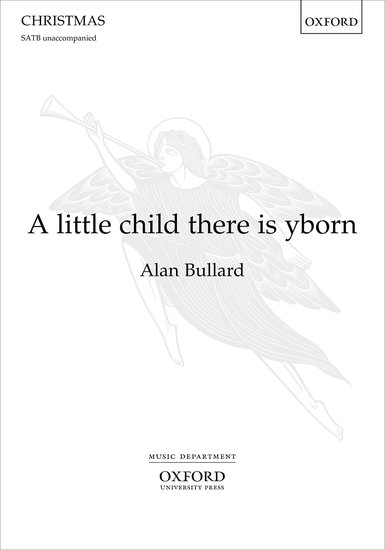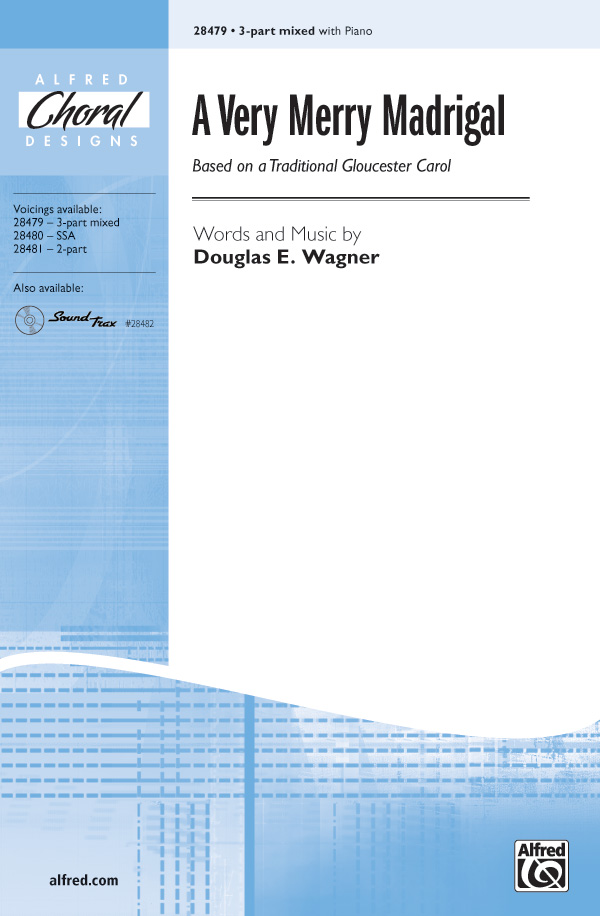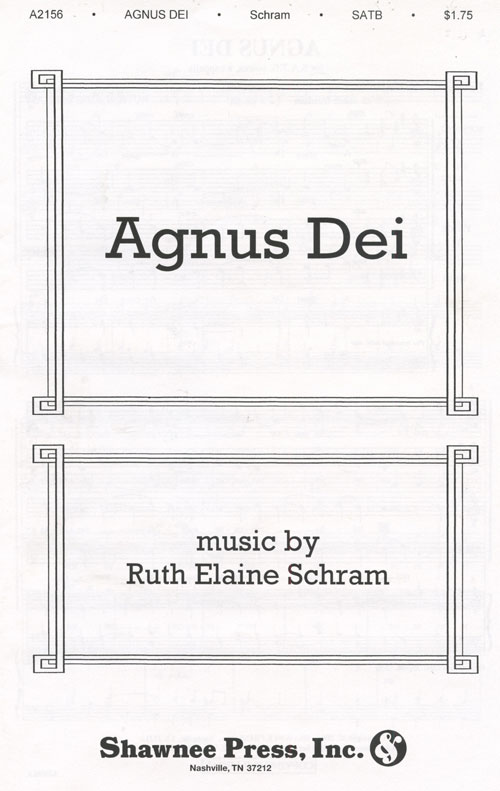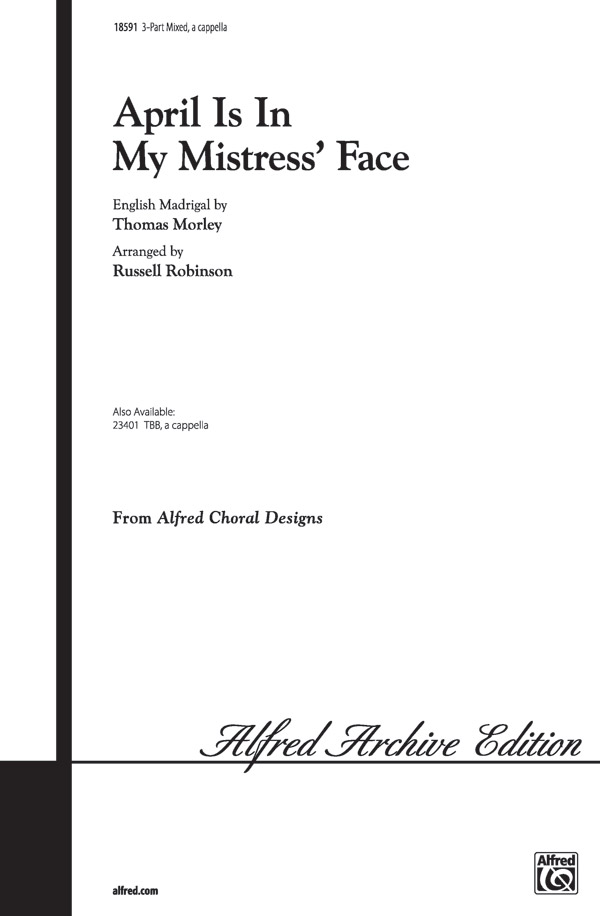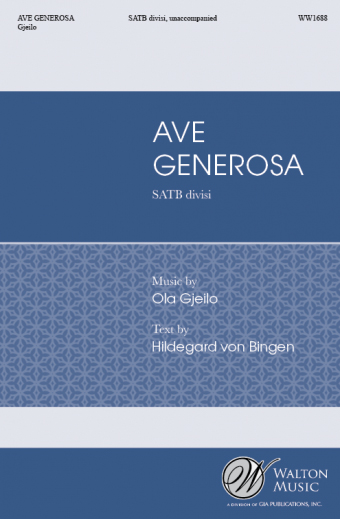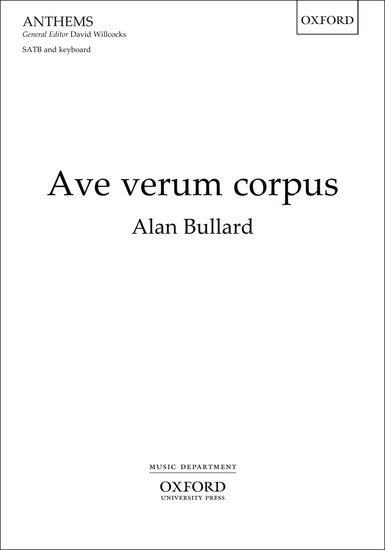In Celebration of the Human Voice - The Essential Musical Instrument
Home | Doo Wop | Barbershop | World | Contemporary | Christian | Vocal Jazz | Choral | Christmas | Instructional | Arrangements
Classical | Opera | Musicals | Personality | Young Singers | Disney | Videos | Songs | The Artists

Early Music Arrangements for Mixed Voices
Songbooks, Arrangements and/or Media
Displaying 1-54 of 54 items.
Anthony G. Petti : The Chester Book of Motets - Volume 1 The volumes of this expanding series are devoted to a wide range of sacred renaissance motets with Latin texts, and contain a mixture of well known and unfamiliar pieces, some of which are published for the first time. All appear in editions by Anthony G. Petti. Contents: Alma Redemptoris (Da Palestrina) - Christus Factus Est (Anerio) - Ego Sum Panis Vivus (Da Palestrina) - Ego Sum Panis Vivus (Da Palestrina) - In Monte Oliveti (Ingegneri) - O Rex Gloriae (Marenzio) - O Sacrum Convivium (Croce) - Regina Caeli (Soriano) - Requiem Aeternam (Anerio) - Sisut Cervus (Da Palestrina) - Super Flumina (Da Palestrina) - Tribus Miraculis (Marenzio). Anthony G. Petti : The Chester Book of Motets - Volume 2 The volumes of this expanding series are devoted to a wide range of sacred renaissance motets with Latin texts, and contain a mixture of well known and unfamiliar pieces, some of which are published for the first time. All appear in editions by Anthony G. Petti. Includes: Agnus Dei (Thomas Morley) - Alleluia (John Tavener) - Audivi (John Tavener) - Ave Verum Corpus (William Byrd) - Cibavit Eos (William Byrd) - Dum Transisset (Robert Johnson) - Euge Caeli (Thomas Tallis) - Gloria Laus (Christopher Tye) - In Manus Tuas (John Shepherd) - Sancte Deus (Thomas Tallis) - Senex Puerum (Byrd, William) - Venite Comedite (William Byrd). Songlist: SENEX, AGNUS DEI MORLEY, THOMAS, ALLELUIA TAVERNER, JOHN, AUDIVI TAVERNER, JOHN, AVE VERUM CORPUS BYRD, WILLIAM, CIBAVIT EOS BYRD, WILLIAM, DUM TRANSISSET JOHNSON, ROBERT, EUGE CAELI TALLIS, THOMAS, GLORIA LAUS TYE, CHRISTOPHER, IN MANUS TUAS SHEPHERD, JOHN, SANCTE DEUS TALLIS, THOMAS, VENITE COMEDITE BYRD, WILLIAM Anthony G. Petti : The Chester Book of Motets - Volume 3 The volumes of this expanding series are devoted to a wide range of sacred renaissance motets with Latin texts, and contain a mixture of well known and unfamiliar pieces, some of which are published for the first time. All appear in editions by Anthony G. Petti. Contents: Anima Mea (Rivaflecha) - Ave Maria (Victoria) - Canite Tuba (Guerrero) - Ego Sum Panis Vivus (Esquivel) - Gloriose Confessor (Guerrero) - Janitor Caeli (Ortiz) - O Magnum Mysterium (Victoria, Tomas Luis De) - Peccantem Me Quotidie (Morales) - Pueri Hebraeorum (Victoria) - Regina Caeli (Morales) - Simile Est Regnum (Morales). Anthony G. Petti : The Chester Book of Motets - Volume 4 The volumes of this expanding series are devoted to a wide range of sacred renaissance motets with Latin texts, and contain a mixture of well known and unfamiliar pieces, some of which are published for the first time. All appear in editions by Anthony G. Petti. Contents: Cantate Domino (Hassler) - Deus In Adjutorium (Senfl) - Ecce Concipies (Handl) - Ecce Quomodo (Handl) - Factus Est Repente (Aichinger) - Laetentur Caeli (Hassler) - Puer Natus (Praetorius) - Regina Caeli (Aichinger) - Resonet In Laudibus (Handl) - Salve Rex Noster (Praetorius) - Tu Es Petrus (Hassler) - Verbum Caro (Walter). Songlist: CANTATE DOMINO HASSLER, DEUS IN ADJUTORIUM SENFL, ECCE CONCIPIES HANDL, ECCE QUOMODO HANDL, FACTUS EST REPENTE AICHINGER, LAETENTUR CAELI HASSLER, PUER NATUS PRAETORIUS, REGINA CAELI AICHINGER, RESONET IN LAUDIBUS HANDL, SALVE REX NOSTER PRAETORIUS, TU ES PETRUS HASSLER, VERBUM CARO WALTER Anthony G. Petti : The Chester Book of Motets - Volume 5 The volumes of this expanding series are devoted to a wide range of sacred renaissance motets with Latin texts, and contain a mixture of well known and unfamiliar pieces, some of which are published for the first time. All appear in editions by Anthony G. Petti. Contents: Ave Maria Gratia Plena (Desprez, Josquin) - Crux Fidelis (Papa) - Gustate Et Videte (Isaac) - Haec Dies (Arcadelt) - Improperium (Lassus) - Jerusalem Surge (Isaac) - Jubilate Deo (Lassus, Orlandus) - O Magnum Mysterium (Willaert) - O Quam Gloriosum (Vaet) - Scio Enim (Lassus) - Tu Solus (Des Prez). Anthony G. Petti : The Chester Book of Motets - Volume 7 The volumes of this expanding series are devoted to a wide range of sacred renaissance motets with Latin texts, and contain a mixture of well known and unfamiliar pieces, some of which are published for the first time. All appear in editions by Anthony G. Petti. Contents: Adoramus Te Christe (Lassu) - Ave Maria (Monteverdi) - Confitemini Domino (Costantini) - Deus Canticum Novum (Asola) - Domine Deus (Morales) - Ego Flos Campi (Papa) - In Die Tribulationis (Morales) - In Pace (Lassus) - Jesu Rex Admirabilis (Palestrina) - Lauda Sion (Monteverdi) - Memento Salus Auctor (Byrd) - O Vos Omnes (Asola) - Recordare Domine (Genet) - Sederunt In Terra (Genet) - Tua Jesu Dilectio (Palestrina). Anthony G. Petti : The Chester Book of Motets - Volume 9 The volumes of this expanding series are devoted to a wide range of sacred renaissance motets with Latin texts, and contain a mixture of well known and unfamiliar pieces, some of which are published for the first time. All appear in completely new editions by Anthony G. Petti. Contents: Ave Virgo Gloriosa (Dering) - Confirma Hoc Deus (Byrd) - Justorum Animae (Byrd) - O Nata Lux De Lumine (Tallis, Thomas) - O Sacrum Convivium (Tallis) - Omnes Gentes Plaudite (Tye) - Precamur Sancte Domine (White) - Terra Tremuit (Byrd) - Tibi Laus (Philips). Anthony G. Petti : The Chester Book of Motets - Volume 10 The volumes of this expanding series are devoted to a wide range of sacred renaissance motets with Latin texts, and contain a mixture of well known and unfamiliar pieces, some of which are published for the first time. All appear in editions by Anthony G. Petti. Contents: Adoramus Te Christe (Nanino) - Dominator Coelorum (Festa) - Gaude Virgo Maria (De Victoria) - Gloria Laus (Perez) - Manus Tuae Domine (Morales) - Mirabile Mysterium (Vinci) - O Beata Trinitas (Da Palestrina) - Repleti Sunt Omnes (Esquivel) - Voce Mea (Porta). Anthony G. Petti : The Chester Book of Motets - Volume 11 The volumes of this expanding series are devoted to a wide range of sacred renaissance motets with Latin texts, and contain a mixture of well known and unfamiliar pieces, some of which are published for the first time. All appear in editions by Anthony G. Petti. Contents: Ave Maria (Papa) - Cantate Domino (Hassler) - Eripe Me De - Inimicis (Raselius) - In Nomine Jesu (Handl) - Jubilate Deo (De Rore) - Justorum Animae (Lassus) - Magi Videntes Stellam (Amon) - Peccantem Me Quotidie (De Monte) - Stetit Jesus (Regnart). Songlist: Jubilate Deo, Ave Maria, Cantate Domino, Justorum Animae, Eripe Me De Inimicis, In Nomine Jesu, Magi Videntes Stellam, Peccantem Me Quotidie, Stetit Jesus Anthony G. Petti : The Chester Book of Motets - Volume 12 A comprehensive series of Latin motets from the Renaissance period, combining old favorites with lesser-known works. This volume include works by Robert Ramsey, Byrd, Palestring and Peter Philips, including: Alma Redemptoris (Orlandus Lassus) - Beata Viscera (William Byrd) - Canite Tuba (Palestrina) - Hodie Christus Natus Est (Jan Sweelinck) - O Beatum Et Sacrosanctum Diem (Peter Phillips) - O Sapienta (Robert Ramsey) - Orietur Stella Jacob (Handel) - Surge Illuminare Jerusalem (Francesco Corteccia) - Tria Sunt Munera (Juan Esquivel). Songlist: ALMA REDEMPTORIS ORLANDUS LASSUS, BEATA VISCERA WILLIAM BYRD, CANITE TUBA PALESTRINA, HODIE CHRISTUS NATUS EST SWEELINCK, JAN, O BEATUM ET SACROSANCTUM DIEM PHILIPS, PETER, O SAPIENTA ROBERT RAMSEY, ORIETUR STELLA JACOB HANDL, SURGE ILLUMINARE JERUSALEM FRANCESCO CORTECCIA, TRIA SUNT MUNERA JUAN ESQUIVEL Anthony G. Petti : The Chester Book of Motets - Volume 13 The volumes of this expanding series are devoted to a wide range of sacred renaissance motets with Latin texts, and contain a mixture of well known and unfamiliar pieces, some of which are published for the first time. All appear in editions by Anthony G. Petti. Contents: Ad Te Levavi (White) -Adolescentulus Sum Ego (Mundy) - Aspice Domine (Byrd, William) - Four Rounds From Pammellia (Ravenscroft) - Jubilate Deo (Dering) - Laboravi In Gemitu (Morley) - O Lux Beata Trinitas (Byrd). Anthony G. Petti : The Chester Book of Motets - Volume 16 The volumes of this expanding series are devoted to a wide range of sacred renaissance motets with Latin texts, and contain a mixture of well known and unfamiliar pieces, some of which are published for the first time. All appear in editions by Anthony G. Petti. Contents: Ad Te Domine Levavi (Hakenberger) - Domine Dominus Noster (Lassus) - Gloria In Excelsis (Nanino) - O Magnum Mysterium (Da Palestrina) - Pastores Loquebantur (Guerrero) - Rorate Caeli (Handl) - Veni Domine (De Morales) - Verbum Caro Factum Est (Hassler). Anthony G. Petti (Editor) : Christmas and Advent Motets for 4 Voices The volumes of this expanding series are devoted to a wide range of sacred renaissance motets with Latin texts, and contain a mixture of well known and unfamiliar pieces, some of which are published for the first time. Songlist: O Magnum Mysterium, Magi Veniut Ab Oriente, Verbum Caro Factum Est, Rorate Caelli, Dixit Maria, Ecce Virgo Concipies, Hodie Christus Natus Est, Dies Sanctificatus, Omnis Mundus Jocundetur, Prope Est Dominus, Ave Gratia Plena, Ne Timeas Maria Christopher Morris : A Sixteenth-Century Anthem Book A collection of anthems for unaccompanied SATB chorus. Songlist: Lift up your heads, O ye gates, O Lord, the maker of all things, Rejoice in the Lord alway, This is the day, Deliver us, O Lord our God, Let my complaint come before thee, Lord, we beseech thee, O sing joyfully, When the Lord turned again, Sacerdotes Domini, Nolo mortem peccatoris, Benedictus qui venit, Holy, Holy, Holy, Audivi vocem de coelo, O Lord, give thy Holy Spirit, O pray for the peace of Jerusalem, O God be merciful, Sing unto the Lord, Exsultate justi, Of the glorious Body telling Ivan Moody : Motets for Five Voices All the motets in this volume are quite early works, taken from the collection 'Sacrae Cantiones Quinque Vocum', published in 1562 at Nuremburg. The typical features of these works are their virtuoso character and exuberance. These are achieved through the use of predominantly bright tonalities, frequent variation of textures and dramatic harmonic and melodic touches. Edited by Ivan Moody, this is part of a series of short volumes, each devoted to a single composer or appropriate group of composers, thoroughly exploring the unlimited resources of Renaissance sacred polyphony. Contains keyboard part for rehearsal purposes. John Leavitt : The Renaissance Singer This colleciton of pieces represent the high art and refinement of the choral song from several countries during the age of the Renaissance. The vocal chamber music in this collection was designed for entertainment in a palace chamber or the home. All of the represented forms in this collection used both the familiar style of the homophony as well as polyphony. the pieces can be performed with multiple voices to each part or s little as one voice for each part. For the German and French songs, the original text is provided as well as an English paraphrase. Songlist: What if I Never Speed, April Is in My Mistress' Face, Musica, die ganz lieblich Kunst (Music, Most Wondrous Lovely Art), Innsbruck, ich muss dich lassen (Innsbruck, I Now Must Leave You), Je le vous dirai! (Do not dare I say it!),, Bonjour, mon coeur (Good Day, Sweetheart) John Leavitt : The SAB Choir Goes Renaissance Here is a fantastic resource for introducing the music of the Renaissance to developing ensembles or groups with limited male singers. Purchase the Performance Kit and receive a code to access audio tracks online through My Library. The six works by Thomas Weelkes, featuring optional percussion. Songlist: Since Robin Hood, The Nightingale, Strike It Up, Tabor, Come, Let's Begin, Four Arms, Two Necks, One Wreathing, Late In My Rash Accounting John Leavitt : The Madrigal Singer John Leavitt has established a reputation for carefully selecting important and historic repertoire, editing it in ways to make singers successful, all while staying true to the stylistic period. This new collection includes Fair Phyllis I Saw (John Farmer), Weep, O Mine Eyes (John Bennet), All Lust und Freud, Tanzen und Springen (Hans Leo Hassler), Il est bel et bon (Pierre Passereau), Tant que vivray (Claudin de Sermisy), Fa una canzona (Orazio Vecchi) and Bonzorno madonna (Antonio Scandello). A value-priced collection of important and standard works. Purchase the Performance Kit and get access to audio tracks online through My Library. Songlist: Weep, O Mine Eyes, Bonzorno Madonna (Good Day Dear), Il Est Bel Et Bon, All Lust Und Freud (All Desire And Joy), Tanzen Und Springen, Fair Phyllis, Fa Una Canzona, Tant Que Vivray John Sheppard : Missa Cantate This practical performing edition is based on the single extant manuscript preserved at the Bodleian Library. The beautiful and well-written Missa Cantate (Gloria, Credo, Sanctus, and Agnus Dei) follows the well-established technique of drawing some material, usually the cantus firmus, from a pre-existing work. Songlist: Missa Cantate, Gloria, Credo, Sanctus, Agnus Dei Josquin Desprez : Missa De beata Missa de Beata Virgine is a musical setting of the Ordinary of the Mass, by Renaissance composer Josquin des Prez. A late work, probably composed or assembled around 1510, it was the most popular of his masses in the 16th century. The Missa de Beata Virgine is unusual among Josquin's masses in that the first two movements are for four voices, and the last three for five, with the fifth voice derived canonically. Like most musical settings of the mass Ordinary, it is in five sections, or movements. It uses different plainsong chants for each movement, and is a paraphrase mass, one in which the original chants are elaborated, broken up, passed between voices, or sung in different voices simultaneously. The movements differ in their treatment of the source plainchant. The Kyrie has the chant in all voices, imitatively and paraphrased; the Gloria treats the chant as a cantus firmus, migrating it from voice to voice. Tonally, both movements end on G, and most of their cadences are on G or D. The Credo, the first movement for five voices, ends with a surprising Phrygian cadence on E, and uses canonic techniques more prominently than in the preceding movements. Songlist: Missa De beata, Kyrie 1, Christe, Kyrie 2, Et in terra, Qui tollis, Cum Sancto, Credo sections, Sanctus, Pleni sunt caeli, Hosanna, Benedictus, Agnus Dei 1, Agnus Dei 2, Agnus Dei 3 Julian Elloway (editor) : The Oxford Book of Tudor Anthems A definitive collection of 100 anthems from Tudor times to the present, this book includes favorites as well as lesser-known pieces. The anthems were selected for their practical usefulness for church choirs today, bearing in mind the needs of smaller choirs: the anthems are mostly for SATB with or without keyboard accompaniments. Songlist: Ave verum Corpus, Haec dies, Justorum animae, Laetentur coeli, Miserere mei, O quam gloriosum, Sing joyfully, Teach me O Lord, This day Christ was born, Factum est silentium, Call to remembrance, Hide not thou thy face, Lord for they tender mercy's sake, Almighty and everlasting God, Hosanna to the Son of David, O clap your hands, O Lord in thy wrath, This is the record of John, Let thy merciful ears, O Lord the maker, Ave Maria, Ascendit Deus, If Ye Love Me, O nata lux, Salvator mundi, With all our hearts, I heard a voice, When David heard, Give almes of thy goods, Alleluia. I heard a voice, and more King's Singers : English Renaissance A variety of music from the great flowering of the English choral art in the king'singers' own editions. Includes a general introduction to the era and background on each work. A must for every high school and college choral library! Includes pieces by: William Byrd (Sing Joyfully, Haec Dies), Orlando Gibbons (Drop Drop Slow Tears, The Silver Swan), John Bennett (All Creatures Now, Weep O Mine Eyes), Thomas Weelkes (As Vesta Was), Thomas Morley (Fire Fire), Edward Pierce (Hunting the Hare), Thomas Ravenscroft (A Round of Three Country Dances, The Three Ravens), Thomas Tallis (If Ye Love Me). Songlist: All Creatures Now, As Vest Was from Latmos Hill Descending, Drop Drop Slow Tears, Fire Fire, Haec Dies, Hunting the Hare, If Ye Love Me, Round of Three Country Dances in One, The Silver Swan, Sing Joyfully, The Three Ravens, Weep, O Mine Eyes King's Singers : European Renaissance Here are 12 of the King's Singers favorite works of the European Renaissance in their own performing editions. Includes performance notes and translations for each work. Spanish: Otro tal misacantano (Anonymous), Dindirin, dindirin (Anonymous); French: Triste depart (Nicolas Gombert), La, la, la, je ne l'ose dire (Pierre Certon), Au joli jeu du pousse avant (Clement Janequin); German: Tanzen und Springen (Hans Leo Hassler), Innsbruck, ich muss dich lassen (Heinrich Isaac); Italian: Parmi di star (Severin Cornet), Il bianco e dolce cigno (Jacques Arcadelt), Chi chilichi (Orlande de Lassus); English: Hark All Ye Lovely Saints (Thomas Weelkes), I Love, Alas, I Love Thee (Thomas Morley). Songlist: Au Joli Jeu du pousse avant, Chi Chilichi, Dindirin, Dindirin, Hark All Ye Lovely Saints, I Love Alas I Love Thee, Il Bianco E Dolce Cigno, Innsbruck, I Now Must Leave Thee, La, la, la, Je Le Vous Dirai, Otro Tal Misacantano, Parmi Di Star, Tanzen Und Springen, Triste Depart Kirby Shaw : A Renaissance Christmas Traditional carols arranged by the highly-regarded Kirby Shaw as for a Renaissance choral performance. Fun and assessable for all choirs. Songlist: Here We Come a-Caroling, Good Christian Men Rejoice, Ding Dong, Merrily On High, What Child Is This?, God Rest Ye Gentlemen, Deck The Hall, We Wish You A Merry Christmas, Bring a Torch, Rejoice Lionel Pike (Editor) : Tudor Anthems - 50 Motets and Anthems for Mixed Voice Choir Tudor and Stuart monarchs reigned during a period of political and ecclesiastical turmoil, out of which occurred profound developments in musical style. Tudor Anthems, (the term loosely applied to cover the years 1520 to 1640) anthologizes some of the finest English musical works of that era. It includes sacred works of various lengths and standards of difficulty for mixed voice choir, accompanied and unaccompanied, by an array of composers, including Byrd, Dering, Gibbons, Morley, Mundy, Parsons, Philips, Smith, Taverner and Tomkins. A comprehensive collection and indispensable resource for any choir's library, prepared in an easily understood performing edition by Lionel Pike. Songlist: Adolescentulus Sum Ego, Agnus Dei, Almighty God Which Hast Me Brought, Almighty God, The Fountain Of All Wisdom, Almighty God, Who By The Leading Of A Star, An Heart That's Broken And Contrite, And The King Was Moved, Appropinquet Deprecacio Mea, Audivi Vocem De Coelo, Ave Maria, Credo Quod Redemptor Meus Vivit, Dum Transisset Sabbatum, Exaudiat Te Dominus, Gaudent In Coelis, God, Which As On This Day, Great King Of Gods, Hear My Prayer, O God, Hosanna To The Son Of David, How Are The Mighty Fallen, I Will Sing Unto The Lord, I Will Wash My Hands In Innocency, In Ieiunio Et Fletu, In Manus Tuas, Domine, In Pace, In Idipsum Dormiam, In The Departure Of The Lord, Laboravi In Gemitu Meo, Laudibus In Sanctis, Man Dream No More, Mater Christi Sanctissima, My Shepherd Is The Living Lord, and more Mason Martens (editor) : Laudate Dominum - Motets of the Renaissance Here are twelve outstanding works from some of the best composers of the era. All are suitable for use in concert performance as well as being organized to provide anthems for most of the major occasions of the Church year. Songlist: Laudate Dominum (O praise the Lord our God), Hodie nobis caelorum Rex (On this day the King of heaven), O vos omnes (O ye people), Crux fidelis (Faithful cross), Surrexit Dominus (The Lord is risen), Regina caeli (O Queen of heaven), Confirma hoc, Deus (Confirm in us, O God), Te Deum Patrem (Thee, God the Father), O sacrum convivium (O sacred and holy feast), Justorum animae (The souls of reighteous men), Beati eritis (Yea, blessed shall ye be), Cantate Domino (O sing unto the Lord) Noah Greenberg : Three Spanish Christmas Carols of the Sixteenth Century Now available for the first time in a single publication, these are the popular editions of three Renaissance works Noah Greenberg prepared for New York Pro Musica. Perform them as a set or individually. Songlist: E la don don, Vegas Maria, Dadme albricias, hijos d'Eva, Riu Riu Chiu Noah Greenberg : English Medieval and Renaissance Songbook This treasury of 47 vocal works - edited by Noah Greenberg, founder and former director of the New York Pro Music Antiqua - will delight all lovers of medieval and Renaissance music. Containing a wealth of both religious and secular music from the 12th to the 17th centures, the collection covers a broad range of moods, from the hearty 'Blow thy Horne thou Jolly Hunter' by William Cornysh to the reflective and elegiac 'Cease Mine Eyes' by Thomas Morley. Songlist: Crist and Saint Marie, Man Mei Longe, Worlds Blis Ne Last, Jesu Cristes Milde Moder, Edi Beo Thu Hevene Quene, Sumer is Icumen In, Alleluya Psallat, Angelus Ad Virginum, Beata Progenies, Alas Departynge is Ground of Woo, Sancta Maria, Sanctus, Deo Gracias Anglia (The Agincourt Carol), Nova, nova, Nowel Syng We Bothe Al and Som, Quid Petis O Fili, With Owt Dyscorde, O My Hart, A Robyn Gentil Robyn, Blow Thy Horne Hunter, Gloria, Agnus Dei, Salvator Mundi, Susanna Fayre Sometime Assaulted Was, Emendemus in Melius, When First by Force of Fatall Destenie, About the May Pole, Leave Alas This Tormenting, Cease Mine Eyes, I Goe Before My Darling, and more Orlando Gibbons : Five English Anthems The choral music of Orlando Gibbons (1583-1625) is unusual among his Tudor contemporaries for being all in English (as far as we know), and is of the very highest quality. This collection provides an excellent value and includes five examples of the work of this rare genius: Almighty and everlasting God; Drop, drop slow tears; Hosanna to the Son of David; Lift up your heads; O Clap Your Hands. Songlist: Lift Up Your Heads, Drop Drop Slow Tears, O Clap Your Hands, Almighty And Everlasting God, Hosanna To The Son Of David Orlando Lassus : Musica, Dei donum optimi The setting was originally published in the year of Lassus' death (1594) and comes from his mature voice. Although it is economical in expression, it is rich and sonorous in sound and brought alive by the six-part counterpoint. It truly brings the text 'Music is a gift from God' to life. Philip Lawson : Five Renaissance Editions Here are five representative works of Josquin des Prez, probably the most famous European composer of the high Renaissance style of polyphonic vocal music in a value priced collection for mixed choirs and madrigal groups. Songlist: Allegez Moi, Mille Regretz, Nymphes Des Bois, Petite Camusette, Scaramella Philip Lawson : Five French Madrigals Orlando di Lasso was a Franco-Flemish composer of the late Renaissance known for his mature polyphonic style. Equally adept in many languages and both sacred and secular forms, his compositions remain a staple of the modern choral repertoire. This collection of French chansons includes five representative works and is an excellent value! Songlist: Bonjour Mon Coeur, Dessus Le Marche, Paisible Domaine, Toutes Le Nuits, Vignon, Vignette Philip Lawson : Prayers and Partsongs Thomas Tallis (1505-1585) was equally at ease composing simple settings of English texts, and more florid Latin motets, as the examples in this collection show. Songlist: If Ye Love Me, Hear The Voice And Prayer, O Lord, Give Thy Holy Spirit, Salvator Mundi, O Sacrum Convivium Philippe de Monte and William Byrd : Super flumina Babylonis and Quomodo Cantabimus Phillipe de Monte wrote Super flumina Babylonis (By the streams of Babylon, there we sat and wept) and sent it to William Byrd who responded by setting the subsequent verses of the psalm text Quomodo Cantabimus (How shall we sing the Lord's song in a foreign land). This edition allows these wonderful pieces to be sung as a unit or separately. Songlist: Super flumina Babylonis, Quomodo Cantabimus Ricky Manalo : Chanting On Our Behalf Though one rarely hears an entire chanted liturgy today, any prayer the priest sings seem somehow richer, more heartfelt and efficacious. Unfortunately many of those in training for the ministry do not receive the training needed to properly sing the parts of the mass. This book can be used with advantage by individuals or in seminaries as the basis for a course in ministerial singing. Pastors who are already ministering will find the book useful if they are concerned about their role as singing ministers. Songlist: Covering the Basics, Retrieving Our Voices, Treble Clefs, Bar Lines and Notes, Embracing Our Voices, Gregory's Modes, Framing The Masterpiece, Magnetic Personalities, Applying For A Tone, Mea Formula, The Heart of the Sacramentary, Putting It Together, Cadential Thoughts Russell Robinson : Renaissance Chorals for Mixed Voices Some choral classics from the Renaissance period. First published in 1603, the quintessential John Dowland madrigal "Weep You No More Sad Fountains" has been newly edited by Russell Robinson. SATB and 3-part mixed choirs will enjoy the lush texture and rich harmonic structure, which exemplifies music of the Renaissance era, and appreciate the high quality of Dr. Robinson's tidy edition. Solid choral repertoire. Long a standard in the choral repertoire, Palestrina's "Adoramus Te" continues to be a favorite for contest or festival. Range is excellent for the SATB junior high choir. Sixteenth century Italian composer Adriano Banchieri must have had quite the sense of humor. The classic light-hearted concert work "Counterpoint Of The Animals" has been a staple in choral repertoire for decades. Now Russell Robinson brings us a new setting that will add a touch of classy fun to any serious concert. Glorious polyphony soars in this edition of Victoria's "O Magnum Mysterium". Long melismas and fugal entrances are part of the beauty of this great Renaissance work. For contest, festival or concert use. Songlist: Two Renaissance Chorals (Adoramus Te / Ave Maria), O Magnum Mysterium, Fa Una Canzona, Counterpoint of the Animals, Weep You No More, Sad Fountains, Adoramus Te Thomas Ravenscroft - (Edited by) Edward Bolkovac : Sing We Now Merrily This collection of rounds and part songs, drawn from the collections of Thomas Ravenscroft, provides a look into the popular music-making of the 16th and early 17th centuries. Overflowing with helpful editorial suggestions and historical context, this is a wonderful resource for both performance and education! Songlist: Editorial Notes, Performing the Rounds, Pedagogical Suggestions, Rounds In Alphabetical Order, Selected Rounds In Score Format, Indexes, Musical Features, Solmisation Charts, Sources Of The Rounds In Alphabetical Order Thomas Tallis : A Tallis Anthology This anthology comprises 17 of Tallis's shorter choral pieces, and is designed to provide choirs and students with a pratical and interesting cross-section of the composer's smaller-scale ourput. These are pratical perfoming editions, transposed where necessary, supplemented by a full critical apparatus for each peice and a general introduction to the anthology. Songlist: Audivi vocem de caelo, Derelinquit impius, Hear the voice and prayer, If Ye Love Me, In ieiunio et fletu, In manus tuas, Laudate Dominum, Mihi autem nimis, O Lord, give thy Holy Spirit, O Lord, in thee is all my trust, O nata lux, O Sacrum Convivium, O salutaris hostia, Purge me, O Lord, Salvator mundi, Te lucis ante terminum, Verily, verily, I say unto you Thomas Tallis : English Sacred Music The sixteenth century was a time of religious upheaval in England. From Henry VIII's protestant reformation through Queen Mary's staunch but short-lived Catholic revival to the return of Anglicanism in Elizabethan times, it would have required careful diplomacy for a Roman Catholic like Thomas Tallis simply to stay alive. In fact he became the most respected composer of his generation and is now recognised as one of the country's greatest composers. 2005 was the five hundredth anniversary of Thomas Tallis' birth and his genius is celebrated in this collection of English-texted sacred music, selected and edited by Jeremy Summerly to provide an invaluable source of introits and anthems for choirs Songlist: If You Love Me, Hear the Voice and Prayer, A New Commandment, O Lord, Give They Holy Spirit, I Call and Cry to Thee, O Lord, With All Our Heart, Discomfit Them, O Lord, Why Fumeth in Sight Thomas Tallis : The Tallis Psalter - Psalms and Anthems The Tallis Psalter comprises a collection of Tallis's nine tunes for Archbishop Parker's Psalter, preces and responses, the Magnificat and Nunc dimittis (Dorian Service) and a number of easily learnable anthems, all by Tallis. David Skinner is one of the leading scholars in editing music of this period, and this book will be attractive to choirs looking for easily performable and new versions of Tallis choral works. Tomas Luis de Victoria : Masses and Motets This beautifully presented edition from Novello offers a full Mass setting alongside a Motet, both for SATB chorus, by Tomas Luis De Victoria. Regarded by many as one of the greatest composers of Spanish renaissance polyphony, this Mass setting is rich in his characteristic tonalities and the textures of the sacred choral tradition. Alongside this is the original Motet upon which the Mass setting is based. Both are transcribed and edited by Andrew Parker. The pairing of the two works offers an exciting and fascinating performance opportunity, with the devout grandeur of the Mass set against the modesty of the original Motet. Songlist: MISSA O QUAM GLORIOSUM, MOTET O QUAM GLORIOSUM EST REGNUM Various Arrangers : Early Music for Mixed Voices "O Magnum Mysterium" was written in the late Renaissance period by Tomas Luis de Victoria, this beautiful piece captures the wonder and mystique of Christ's birth. Russell Robinson has arranged O Magnum Mysterium, making it more accessible to both school and church choirs, by setting it in a slightly higher key than the original, and with notation that is more easily understood. The music of the Renaissance has a pure clarity of sound that every singer should experience. Ruth Elaine Schram's setting of "Agnus Dei" is a lush setting with parts intertwining in the most unexpected ways, forming uniquely beautiful harmonies. The cyclical nature of the piece reiterates the meaning of the text, a fervent prayer, "Lamb of God, grant us peace." Festival or contest piece for schools, and a moving Lenten anthem for the sanctuary. A passionate Latin text, "Adoramus Te" embodies all of the purity and pristine beauty of Renaissance music. Sung a capella, this reverent masterwork may be used in concert, contest, or festival settings by school or church groups. Appropriate for high school children. Robert Shaw commissioned Chester Alwes to make an edition of Tomas Luis de Victoria's motet, "O Vos Omnes", which was to be sung as part of the Robert Shaw Summer Festival in France. Robert Shaw has added tempo indication and expressive and dynamic marks, which indicates his feelings about how the piece should be realized in contemporary performance giving modern conductors the guidance of one of America's foremost choral musicians. The a cappella madrigal from the high Renaissance "Adieu, Sweet Amaryllis" is now available as a choral. It features opportunities for dynamic contrasts and development of musical line. John Leavitt has edited the piece with optional cue notes to make the tenor range more accessible to a larger group of singers. This madrigal is stunningly beautiful. This buoyant Spanish love song"Catinga" includes words by Gil Vincente and extols the beauty of one beyond compare, asking sailor, soldier, and shepherd if they have ever seen such loveliness. Cantiga is sung a cappella, with the voices simulating the strumming of a guitar and providing percussive accompaniment to the melody. Great fun! Songlist: O Magnum Mysterium, Agnus Dei, Adoramus Te, O Vos Omnes, Cantate Domino, Adieu, Sweet Amaryllis, Catinga Various Arrangers : Carols of the Middle Ages The New Oxford Book of Carols (1992) was born of the need for a practical collection presenting carols either in their original versions (where such a concept was relevant) or in versions that respected the essential character of the melodies and their texts. The original 700-page book, which contains alternative versions of many carols, also offers an extensive historical introduction and notes to individual carols, from which the information below is summarized. The word "carol" has had a variety of meanings, starting as a dance-song in the Middle Ages. Carols are now almost exclusively associated with Christmas, and their subject-matter is either midwinter cheer, or the conception and birth of Christ. While modern secular practice is to sing them before Christmas, they formerly belonged to the period between Christmas eve and Epiphany. Our own criteria for selecting carols re that the content must be narrative, contemplative or celebratory, the spirit simple, the form normally strophic. Songlist: Veni, Redemptor Gencium, Angelus ad Virginem, Verbum Caro Factu Est: In Hoc Anni Circulo, Verbum Patris Umanatur, Qui Creavit Celum, Corde Natus Ex Parentis William Byrd : Five Sacred Choral Works William Byrd (c.1540-1623) is one of the giants of the English Renaissance, composing sacred polyphony for both Anglican and Catholic rites. This collection provides well-edited, clean editions at an excellent value, and includes: Exsurge, Domine; Haec Dies; Laudibus in sanctis; Praise Our Lord, All Ye Gentiles; Sing Joyfully. Songlist: Sing Joyfully, Exsurge, Domine, Haec, Dies, Laudibus In Sanctis, Praise Our Lord, All Ye Gentiles William Byrd : Collection Vol 1 The greatest English composer of his generation, comparable in stature to his most distinguished continental contemporaries, William Byrd was a versatile composer. Byrd's compositions for the church may be separated into those for the Catholic liturgy and those designed for the officially recognised Church of England. The first category includes settings of the Mass for three, four and five voices, and a large quantity of other works for the various seasons of the church year. Well-known for his keyboard works here are a collection of his a cappella arrangements that have has been sung in English cathedrals uninterrupted for the past four centuries. Songlist: Non Nobis Domine, Haec Dies, Justorum Animae, Laetentur Caeli William Byrd : Collection Vol 2 The greatest English composer of his generation, comparable in stature to his most distinguished continental contemporaries, William Byrd was a versatile composer. Byrd's compositions for the church may be separated into those for the Catholic liturgy and those designed for the officially recognised Church of England. The first category includes settings of the Mass for three, four and five voices, and a large quantity of other works for the various seasons of the church year. Well-known for his keyboard works here are a collection of his a cappella arrangements that have has been sung in English cathedrals uninterrupted for the past four centuries. For SATB choir. Songlist: O Magnum Mysterium, Prevent Us, O Lord, Rorate Caeli Desuper, Ave Verum Corpus, Exsurge Domine William Byrd : Four Motets for All Saints William Byrd's Mass Proper for the feast of All Saints is beautifully arranged for unaccompanied mixed voices by Sally Dunkly. Songlist: Mass Of Propers For The Feast Of Old Saints, Introit, Gradual & Alleluia, Offertory, Communion William Mundy : Beatus et Sanctus, sive vigilem This edition reconstructs two breathtaking motets by the English composer William Mundy. The text by St Francis of Assisi, incorporating the phrase 'we do not know the day or the hour when the Lord will come', is appropriate for the end of the Church Year and during the Season of Advent. These elegant, straightforward settings are within the abilities of most church choirs. |
Displaying 1-50 of 321 items.
This 13th century melody is arranged for high school choirs looking to expand into polyphony for the Christmas season. Smoothy melodic lines give way to smart challenges in range, while the B section dabbles in counterpoint--a perfect opportunity for study of Medieval forms.
Arranger: Philip Lawson
This lively madrigal is a dandy and upbeat addition to your Christmas program. Perfect for a high school or adult choir. Difficulty Level: Medium Adult. Duration - 00:03:20.
Arranger: Christopher Boodle
A mixolydian melody becomes the foundation for this stately three-part canon with madrigal style counterpoint. Festive flute and hand drum parts add a Renaissance music touch to a piece with only 12 bars of singing to teach. Ideal for processionals, madrigal feasts, or as a concert opener.
Composer: Sally K. Albrecht
This celebratory carol on the popular fifteenth-century text is full of Christmas cheer. Jaunty, up-tempo, and in 7/8-time, it is an ideal opening for Christmas concerts and services.
Composer: Alan Bullard
The text for this lovely work is taken from an anonymous 14th century manuscript. Bryan Greer has set the piece for SATB chorus and piano or small orchestra. The work is accessible for many church choirs but also may have a place in programming for other ensembles. Try it for your lessons and carols. Difficulty Level: Medium Adult.
Arranger: Bryan Greer
Greet seasonal concertgoers with this festive original sung in the madrigal style. Joyful (and mostly step wise) "fa la la" refrains are sung following each of two welcoming verses, arranged with slightly different choral colors the second time. A wonderful Renaissance inspired SoundTrax sets the early music tone, or consider playing the keyboard part on a harpsichord synthesizer.
Arranger: Geoffrey Mason | Composer: Franz Joseph Haydn
Thomas Bell has arranged this 15th century English carol for unaccompanied mixed chorus with percussion. The mixed meter complements the normal inflection of the text and provides an incredible energy that will have your audience on their feet! Difficulty Level: Medium Advanced Adult.
Arranger: Thomas Bell | Composer: Traditional
This a cappella madrigal from the high Renaissance is now available as a stand alone choral. It features opportunities for dynamic contrasts and development of musical line. John Leavitt has edited the piece with optional cue notes to make the tenor range more accessible to a larger group of singers. This madrigal is stunningly beautiful.
Arranger: John Leavitt
A passionate Latin text, Adoramus Te embodies all of the purity and pristine beauty of Renaissance music. Sung a capella, this reverent masterwork may be used in concert, contest, or festival settings by school or church groups. Appropriate for high school children.
Arranger: John Leavitt | Composer: Giovanni Pierluigi da Palestrina
Ruth Elaine Schram's setting of Agnus Dei is a lush setting with parts intertwining in the most unexpected ways, forming uniquely beautiful harmonies. The cyclical nature of the piece reiterates the meaning of the text, a fervent prayer, "Lamb of God, grant us peace." Festival or contest piece for schools, and a moving Lenten anthem for the sanctuary.
Composer: Ruth Elaine Schram
Arranger: Geoffrey Mason | Composer: George Frideric Handel
But I don't have a double chorus!" Try it instead with choir and antiphonal brass, strings, or organ-all choices authentic for this 16th century edition. SATB Double Choir or SATB choir and brass quartet. The Horn in F parts are substitutes for the trombone parts.
Composer: Gallus
Known for his beautiful, flowing melodies and rewarding singability, Spanish composer Francesco Guerrero delights with this Marian antiphon. Skillfully edited by Mike McFerron and translated into English by Ronald F. Krisman, this a cappella setting is perfect for use after compline during the seasons of Advent or Epiphany and can also be sung for other Marian celebrations throughout the liturgical year.
Composer: Francisco Guerrero
(Palestrina/Henson) SATB
Arranger: Terry Eder | Composer: Giovanni Pierluigi da Palestrina
Richard Proulx arranged Thomas Ford's SATB anthem for SAB voices. Constructed in AA BB format, this piece is easily learned. The general nature of the text, and its brevity-clocking in at about one minute-make it suitable for numerous moments in the liturgy and at many times throughout the church year.
Composer: Thomas Ford
This 13th century carol has been arranged by Philip Lawson in a contemporary style that retains some of its ancient roots. With intertwining voices, interesting two against three rhythms, it has a freshness that will enhance concerts in school, community and church!
Arranger: Philip Lawson | Composer: Traditional
This lesser-known Masterwork is refashioned for optimal flexibility in a joyful offering. Alive with an exuberant classical style, the octavo includes a dual text for both Palm Sunday and Easter celebrations. Ideal as a call to worship, traditional churches will enjoy presenting this anthem with the trumpet obbligato for a special festive touch.
Arranger: Patrick Liebergen | Composer: Henry Purcell
Here is the famous madrigal by Thomas Morley in a new performing edition. Ideal for chamber, madrigal and concert choirs, this gentle work offers superb opportunities for developing style, intonation and blend.Available separately: SATB a cappella. Performance Time: Approx. 1:30.
Arranger: John Leavitt | Composer: Thomas Morley
A sumptuous edition of an a cappella standard from the madrigal repertoire by Thomas Morley. Available for 3-part mixed voices, Russell Robinson's new adaptation features flowing contrapuntal lines, appropriate vocal ranges, and tasteful editor's marks for a truly authentic performance. Enjoyable to sing, valuable to teach, and splendid to hear.
Arranger: Russell Robinson | Composer: Thomas Morley
Texts: Latin and English Publisher: Boosey & Hawkes Difficulty level: 3 The Ceremony of Carols is one of Britten's best-known and most-performed works. It is a brilliantly conceived and dramatic concert work which sees the voices process to their places singing unaccompanied plainsong and, at the end, processing out again to the same chant. These movements can also be accompanied but strictly only if the voices do not process. The final Alleluia can be repeated as many times as necessary to get the singers to and from their destination.The carols are for three-part children's voices (though, of course they can be sung by female adults as well) and they form a two-part work around a central Interlude for harp which is based on the plainsong from the Procession. Variety is the key word here as all the carols have such individual identities. The forthright Wolcum Yole!, the deliciously lyrical There is no Rose, the swinging Balulalow, the fiery and dramatic This little Babe all contribute
Composer: Benjamin Britten
This SATB setting of Hildegard von Bingen's Ave Generosa text uses a hauntingly joyful tonality, paying homage to the mysterious story of Mary. A beautiful middle section is surrounded by contrasting, modal beginning and ending sections. The juxtaposition of sustained and moving moments holds true to the composer's style, while the harmonic structure and vocal construction offer something very fresh.
Arranger: Ola Gjielo | Composer: Hildegard von Bingen Performed By: Kantorei Denver
William Tortolano has edited this canon by Mozart. "Ave Maria" is the only text. The canon is for four parts, but any combination of male and female voices is possible; or an instrument can play one of the lines if all four parts cannot be done vocally.
Composer: Wolfgang Amadeus Mozart
This contemporary a cappella setting of the traditional Latin text was composed as a gift to Judith Clurman. Edited by Ms. Clurman. Duration: 2:30.
Arranger: Wayne Oquin
This timeless Byrd motet removes the modern barlines that obscure the natural stress of the text. Extensive notes and a word-for-word translation are provided. A great tool for teaching Renaissance style, as well as simply being a piece every choir should know!Ê
Composer: William Byrd
This is a gentle and highly attractive setting of the medieval Latin hymn, suitable for church choirs at any communion service or for Lent, Passiontide, or Corpus Christi. With a delicate expressive melody, rich harmony, and a flowing accompaniment, it offers an appealing alternative to more familiar settings. It is part of the composer's Passiontide work, Wondrous Cross.
Composer: Alan Bullard
This edition by Matthew Michaels adds contemporary markings for dynamics and other musical elements. Well-thought out, this is a welcome addition to contest repertoire. Available separately: SATB a cappella.
Arranger: Matthew Michaels | Composer: William Byrd
A superb edition of this classic. Scored for string quartet/ quintet with continuo, or solo violin and organ. Reverses some "improvements" on Mozart's score that crept into early 20th- century editions by returning to and respecting the original.
Composer: Wolfgang Amadeus Mozart
Composer: Tomas Luis de Victoria
From Queen's College, Oxford, comes the ancient ritual and the rousing holiday song The Boar's Head Carol, where the highly decorated dishes of the Christmas feast were presented to the company amid song, pomp and circumstance, with the great platter on which rested the boar's head given pride of place. This arrangement can be adapted and customized to suit various levels of choirs, and lends itself to staging a spirited processional.
Arranger: Stephen Hatfield
This playful French chanson by di Lasso is delightful! Easily learned and effective in performance! Also includes an English text. Performance Time: Approx. 1:00
Composer: Orlando Lassus | Country: France
 |  | |||||||
| Page: | 1 | 2 | 3 | 4 | 5 | 6 | 7 |
![]() Vocal Harmony Arrangements - Home
Vocal Harmony Arrangements - Home
Christian | Gospel | Standards | Musicals | Specialty | World | Barbershop | Contemporary | Vocal Jazz | Choral | Christmas
Mixed Voices | Female | Male | 8 Parts | 6 Parts | 5 Parts | 3 Parts | 2 Parts | Medleys | Solo | Folio Series | New Releases
Select a Category |
Want to Sing? - Find a Chorus Near You
List of Choruses by State | List of Choruses by City















